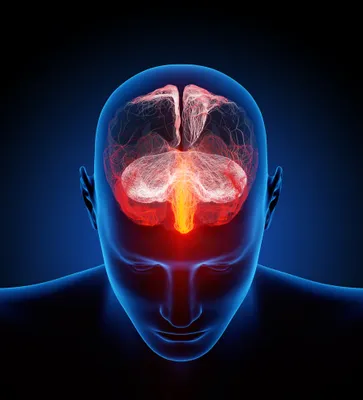Almost everyone gets a headache now and then, and they can be quite unpleasant. However, for those who suffer migraines, painful and even debilitating headaches are part of their normal life.
There are some distinct differences between a “regular” headache and a migraine, so it’s important to know the difference if you’re planning on seeking medical advice or taking a prescription drug. Here are six symptoms of migraines to help you get your head around them…
1. Warning Signs
While 12-percent of so of the U.S. population experiences migraines, according to MedicalNewsToday.com, some sufferers get a “warning prodrome” long before the severe headache sets in. Sources notes these warning signs could range from diarrhea, to neck stiffness, to depression.
The source notes you can also experience an “aura of sensory disturbances,” which usually occurs closer to the onset of the migraine. The good news is that you may be able to nip the migraine in the bud before it happens by getting to a quiet place, applying acupressure to your skull, or practicing deep breathing.
2. Extended Pain
A mild headache usually goes away on its own fairly quickly, or after you’ve left a stressful situation or taken a low dose of over-the-counter painkillers. These standard headaches can sometimes even be taken care of with something as simple as a glass of water.
However, a migraine is not quite as simple. Once a migraine has set in, it can last up to 72-hours (3-days) if left untreated, according to The Mayo Clinic. On top of that, migraines can strike several times a month in some sufferers, adds the clinic.
3. Postdrome Symptoms
While most headaches disappear from the same place they came, migraines can carry a host of unpleasant aftereffects, according to the Huffington Post. Postdrome is the final phase following intense pain, notes the source.
These aftereffects can include feeling drained, feeling “foggy” or confused, or having a heightened sensitivity to light, it adds. However, in some cases there have been reports of feeling “joyous,” which is obviously a more desirable side effect of a migraine.
4. Localized Discomfort
While normal headaches can seemingly be throughout your entire skull, you might not be able to pinpoint one specific place where it’s emanating from. This may differ from a migraine, which can often be specific to one side of the head, according to Migraine.com.
Migraine pain can be even more localized than that, adds the source – “not just in the typical places you think of a headache, but inside or behind the eye, or in the face, teeth, roof of the mouth or ears”. The type of pain can vary, from a stabbing sensation to feeling extreme pressure, it adds.
5. Additional Health Impacts
We touched on “prodrome” and “aura” symptoms leading up to migraines, which include seeing spots or flashing lights, heightened sound sensitivity, and other strange anomalies. However, aside from the usual head pain that comes with a normal headache, migraines can also carry other unwanted effects.
Healthline.com notes you can even have temporary vision loss during a migraine, have tingling or numbness in the face or hands, dizziness or experience nausea that leads to vomiting. If you regularly experience these types of symptoms that accompany your headache, you may want to talk to your doctor about migraine treatments.
6. Temporary Paralysis
Much like the temporary blindness we just mentioned, “Hemiplegic migraine” is rare among migraine sufferers. WebMD describes the latter symptom as a “short period of paralysis (hemiplegia) or nerve changes on one side of the body,” which can lead to muscle weakness.
The source also points out that if you have temporary paralysis or sudden changes in vision, it’s important to know how to tell these signs apart from stroke symptoms http://www.activebeat.com/your-health/10-common-symptoms-of-a-stroke/, which can be similar and life-threatening.









